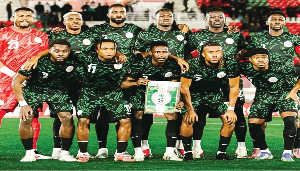The ongoing efforts of the National Assembly through the Senate and House Committees on Aviation to prevail on the federal government to release N50 billion as bailout funds to the domestic airlines to cushion the economic hardship inflicted on them by the COVID-19 has continued to attract controversy.
The lawmakers had earlier faulted the N4 billion earlier announced by the government through the Minister of Aviation, Senator Hadi Sirika as the bailout fund for the airline which they described as infinitesimal compared to the huge capital intensive nature of running airline business.
The lawmakers at the recently concluded public hearing on the repeal and enactment of aviation bills for the aviation agencies suggested a bailout of N50 billion as the appropriate fund that could revive the domestic airlines from the effects of the pandemic.
In its reaction,Group Captain John Ojikutu (retired), a former military commandant of the Murtala Muhammed International Airport and a Fellow, Institute of Security of Nigeria, cautioned the lawmakers to avoid a similar mistake made in the past which brought no good result for the country.
According to Ojikutu; “What I am hearing after the public hearing of both houses is that you are gradually leading the country again to the mistakes of the past with your deliberate plans to disburse public funds to the private airlines operators without any rationale, justification in benefits to the greater Nigerian public.
"In 2012, when a similar matter came up before the house for N200 billion intervention from the Central Bank of Nigeria at five per cent for private airline operators, questions of rationale and justification were raised, none came from nowhere. It might interest you to know that the minister then, Stella Oduah, told the public hearing headed by then Senator Hope Uzodinma and now a sitting Governor that the ministry had no records of such intervention. Today, and eight years after, AMCON is still looking for how to recover this money among over N1 trillion that has brought us into the second economic recession.
“It might interest you to know too that the 8th NASS members were aware that N19.5 billion was taken in 2007 as loan at 25 per cent interest from a public bank for the six aviation government agencies. Unfortunately, our elected representatives are not seeing all these clearly through this recession mirrors as abnormal cases that should serve as lessons from the past.
“If our elected representatives are insisting that N50 billion instead of the N4 billion planned by the minister of aviation is what the airlines need, how have you gotten to that conclusion? What would that amount be meant for or what are portfolios of the beneficiaries operations would that address? Would the intervention take care of the portfolios before the COVID-19 or during the COVID-19? Would the amount take care of the debts owed by these private operators to the public operators? Would the amount take care of the debts owed by the private airlines to the private ground handling operators/services providers or would the palliatives be extended to the ground services providers who are private operators? Would the amount be extended to the private aircraft operators and chartered flights operators? Would any palliatives be extended to the private road transporters too? Are the financial needs of these operators ever before now reflected in any economic audit reports of the NCAA? Whatever the NASS members are doing with the private airlines operators now without finding answers to these questions will not solve any of the problems they believe are the reasons for the industry setbacks rather, it will compound the problems as they have done in the past.”
The retired Group Captain however urged the lawmakers to be very careful and very critical of reasons proffered to justifying giving public money to private enterprises, wondering why the airlines that are presently owing the aviation agencies N22 billion will still be given additional N55 billion by the National Assembly instead of N4 billion to make their debts increase to N72 billion outside the debts they owe other creditors.
“When we refer to foreign countries giving financial palliatives to their airlines, we forget or fail to believe that those are not necessarily national airlines but public airlines and not private airlines. Please find out if Virgin Atlantic has gotten a dime from the British Government as palliatives at any time pre or during COVID-19.
“If the 9th NASS is not going to be on the part of the private airline operators to kill the sector in the name of COVID-19, members should begin to look into the past on why those before them including the Nigeria Airways collapsed; why they are charging fares less than they were charging twenty years ago for the same distance at a different dollar rate; why they cannot do code sharing among themselves on domestic and regional routes if they cannot merge; why government or the ministry is reluctant to reduce the multiple destinations landings given to the foreign airlines and encourage them to develop domestic and regional code sharing with the private airlines.
“If previous financial assistance did not help, what is the guarantee that the new one being contemplated would work? We must note that we are providing the N72 billion to mostly five million domestic passengers and about 40 per cent of these are regular passengers that travel about six to twelve times minimum in a year, forgetting the tens of millions of Nigerians travel in other transportation modes; how much has been considered for these in road, rail and waterways?”
Business News of Thursday, 3 December 2020
Source: tribuneonlineng.com













